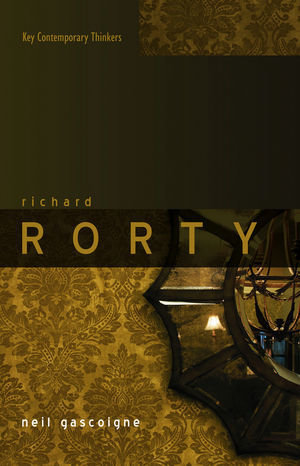Neil Gascoigne provides the first comprehensive introductionRichard Rorty's work. He demonstrates to the general readerand to the student of philosophy alike how the radical views ontruth, objectivity and rationality expressed in Rorty'swidely-read essays on contemporary culture and politics derive fromhis earliest work in the philosophy of mind and language. He avoidsthe partisanship that characterizes much discussion ofRorty's work whilst providing a critical account of some ofthe dominant concerns of contemporary thought.Beginning with Rorty's early work on concept-change in thephilosophy of mind, the book traces his increasing hostility to theidea that philosophy is cognitively privileged with respect toother disciplines. After the publication of Philosophy and theMirror of Nature, this led to a new emphasis on preserving themoral and political inheritance of the enlightenment by detachingit from the traditional search for rational foundations. Thisemerging project led Rorty to champion 'ironic'thinkers like Foucault and Derrida, and to his attempt to updatethe liberalism of J. S. Mill by offering a non-universalisticaccount of the individual's need to balance their own privateinterests against their commitments to others.By returning him to his philosophical roots, Gascoigne shows whyRorty's pragmatism is of continuing relevance to anyoneinterested in ongoing debates about the nature and limits ofphilosophy, and the implications these debates have for ourunderstanding of what role the intellectual might play incontemporary life. This book serves as both an excellentintroduction to Rorty's work and an innovative critique whichcontributes to ongoing debates in the field.

